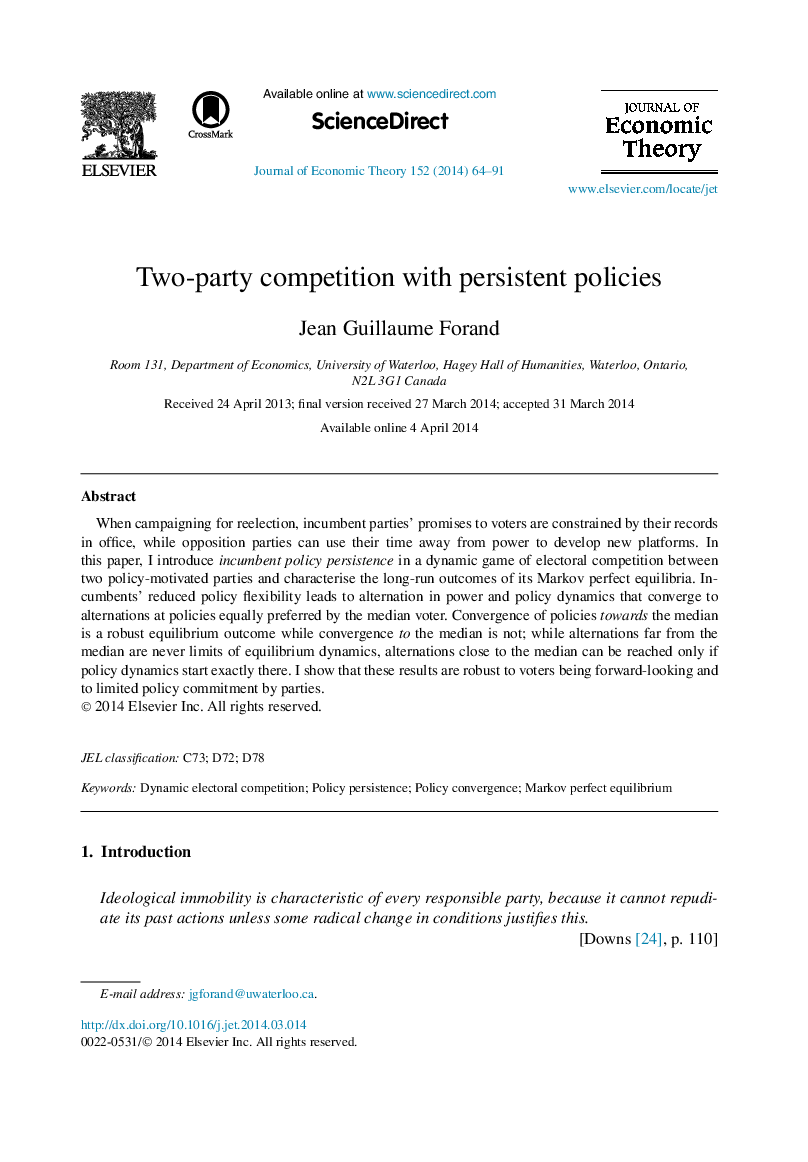| Article ID | Journal | Published Year | Pages | File Type |
|---|---|---|---|---|
| 7359849 | Journal of Economic Theory | 2014 | 28 Pages |
Abstract
When campaigning for reelection, incumbent parties' promises to voters are constrained by their records in office, while opposition parties can use their time away from power to develop new platforms. In this paper, I introduce incumbent policy persistence in a dynamic game of electoral competition between two policy-motivated parties and characterise the long-run outcomes of its Markov perfect equilibria. Incumbents' reduced policy flexibility leads to alternation in power and policy dynamics that converge to alternations at policies equally preferred by the median voter. Convergence of policies towards the median is a robust equilibrium outcome while convergence to the median is not; while alternations far from the median are never limits of equilibrium dynamics, alternations close to the median can be reached only if policy dynamics start exactly there. I show that these results are robust to voters being forward-looking and to limited policy commitment by parties.
Related Topics
Social Sciences and Humanities
Economics, Econometrics and Finance
Economics and Econometrics
Authors
Jean Guillaume Forand,
